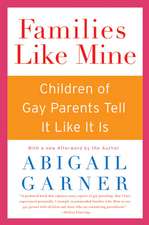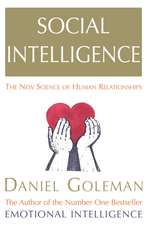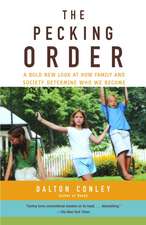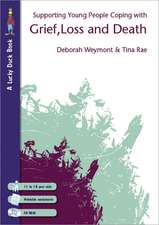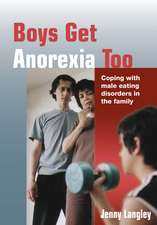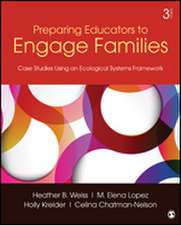Understanding Families: A Global Introduction
Autor Linda McKie, Samantha Callanen Limba Engleză Paperback – 14 dec 2011
- Carol Smart, The Morgan Centre, University of Manchester
"This excellent, innovative, comprehensive and easy to read text should be essential reading for everyone keen to understand families across the globe... It will make an outstanding contribution to family studies and is highly recommended."
- Janet Walker, Newcastle University
"Easy to read text, which debates current thinking surrounding modern families. Case studies and questions for the reader throughout the text help traslate theory into practice."
- Justine Gallagher, Northumbria University
Families are the core building blocks of society. Our experience of them affects many aspects of our everyday lives shaping our expectations and future plans. Written by experts in family studies and family policy, this clear, engaging book adopts a global perspective to usefully examine how modern families can be explored and understood in research, policy and practice.
Packed with critical pedagogy, including case-studies, think points, key words and a glossary, it guides students through topics such as relationships, sexualities and paid and unpaid work, continually returning to its central themes of process and structure. The book also:
- Applies key social theories to contemporary analysis
- Examines key studies on researching families and family life
- Explores the role of government policies and practices
Linda McKie is Professor of Sociology, Glasgow Caledonian University; Samantha Callan is based at the Centre for Social Justice. They are both affiliated to the Centre for Research on Families and Relationships at the University of Edinburgh.
Preț: 348.87 lei
Nou
Puncte Express: 523
Preț estimativ în valută:
66.77€ • 69.45$ • 55.12£
66.77€ • 69.45$ • 55.12£
Carte disponibilă
Livrare economică 24 martie-07 aprilie
Livrare express 07-13 martie pentru 31.80 lei
Preluare comenzi: 021 569.72.76
Specificații
ISBN-13: 9781847879325
ISBN-10: 1847879322
Pagini: 264
Dimensiuni: 170 x 242 x 15 mm
Greutate: 0.43 kg
Ediția:1
Editura: SAGE Publications
Colecția Sage Publications Ltd
Locul publicării:London, United Kingdom
ISBN-10: 1847879322
Pagini: 264
Dimensiuni: 170 x 242 x 15 mm
Greutate: 0.43 kg
Ediția:1
Editura: SAGE Publications
Colecția Sage Publications Ltd
Locul publicării:London, United Kingdom
Recenzii
This excellent, innovative, comprehensive and easy to read text should be essential reading for everyone keen to understand families across the globe. It addresses key questions, carefully blends policy concerns, research issues and theoretical debates, points to further reading and includes a very helpful glossary. It will make an outstanding contribution to family studies and is highly recommended
Janet Walker
Emeritus Professor, Newcastle University
This is a clearly written, well organized, and highly digestible overview of the sociology of the family. It covers major themes and issues, including important changes over time in behavior as well as the ideas used to understand patterns of behavior and structure. The authors manage to include a strong international perspective while highlighting many specific examples and trends in the UK and across Europe. What I appreciate so much about this book is that it is to the point and not overburdened by a tedious amount of detail or nuances of the type that can so easily mire and demoralize readers who are trying to capture the essential features in the study of the family. I highly recommend this book for serious students who want to efficiently capture the gist of this thing called family
Scott M. Stanley
Research Professor and Co Director of the Center for Marital and Family Studies, University of Denver, USA
I don't know how often I've wished for an introductory text on family life which encompassed critical contemporary sociological thinking alongside the basic information students need, and have only found fossilised thinking on a stodgy subject. But now all that has changed. McKie and Callan have achieved what I thought was almost impossible in Understanding Families; this is a textbook which provides unrivalled foundations for a critical understanding of contemporary families and relationships
Carol Smart
Professor of Sociology, The Morgan Centre, University of Manchester
Janet Walker
Emeritus Professor, Newcastle University
This is a clearly written, well organized, and highly digestible overview of the sociology of the family. It covers major themes and issues, including important changes over time in behavior as well as the ideas used to understand patterns of behavior and structure. The authors manage to include a strong international perspective while highlighting many specific examples and trends in the UK and across Europe. What I appreciate so much about this book is that it is to the point and not overburdened by a tedious amount of detail or nuances of the type that can so easily mire and demoralize readers who are trying to capture the essential features in the study of the family. I highly recommend this book for serious students who want to efficiently capture the gist of this thing called family
Scott M. Stanley
Research Professor and Co Director of the Center for Marital and Family Studies, University of Denver, USA
I don't know how often I've wished for an introductory text on family life which encompassed critical contemporary sociological thinking alongside the basic information students need, and have only found fossilised thinking on a stodgy subject. But now all that has changed. McKie and Callan have achieved what I thought was almost impossible in Understanding Families; this is a textbook which provides unrivalled foundations for a critical understanding of contemporary families and relationships
Carol Smart
Professor of Sociology, The Morgan Centre, University of Manchester
Cuprins
Introduction
Structures, Processes and Strategies
Family or Families?
Families in History
The Families We Live With, The Families We Live By
The Contents of the Book
Summary
Explore Further
PART ONE: INTRODUCING FAMILIES
Families and Relationships
Introduction
Families: A Constant State of Flux
Continuities and Presumptions
Structures: Identifying and Talking About Families
Defining Families 1: Common Characteristics
Defining Families 2: Values, Memories and Spaces and Places
Statistical Trends and Family Structures
Processes: Families, Kinship and Activities
Global Families
Topic 1. The Impact of Welfare Regimes on Families: France, the Russian Federation, East and West Germany
Topic 2: Ideal and Actual Families in Asia
Summary
Explore Further
Explaining Families
Introduction
Sociological Explanations: Premise and Origins
Ideology and Theory: What Is This Thing 'the Family'?
Sociological Theory
Ties that Bind: Making Sense of Structures
Families as a Framework: Parsons
Socialization: Merton
Actors and Actions: Theories of Interaction
Interactions: Goffman
Structures and Practices: Giddens and Wallace
Theories of Conflict
The 'Lifeworld' of Families: Habermas
Women, Men, Gender: Feminist Perspectives
Feminist and Gender: Perspectives on Families
Global Dimensions
Contemporary Voices on Intimacy
Summary
Explore Further
PART TWO: RESEARCH AND POLICY
Researching Families
Introduction
Research Methods
Survey Research
Writing About People and Families: Ethnographic Research Methods
Secondary Analysis of Research Studies
Historical Research on Families
Approaches to the History of the Family
Better Times for Families?
Documenting Change in Family Processes
Family and Sex 1900-2000
Private Troubles and Public Issues
Researching Change and Continuity
Solo Living
Talking About Sex
Single Parenting
Summary
Explore Further
Politics, Policies and Practices
Introduction
Definitions
Policies and Families' Forms and Functions
Family Policy - New Kid on the Block?
How do Policies Deliver Benefits to Families?
Policy Approaches to Different Family Forms
Evidence-Based Policy
Families in Action
Families and Social Cohesion
Families and Social Breakdown
Beyond Stereotypes
Families and the Welfare State
The Relationship Between Politics and Policies
Services and Practices
Types of Services
Summary
Explore Further
PART THREE: FAMILIES IN ACTION
Relationships and Sexualities
Introduction
Lets Get Together: Marriage, Cohabitation
Universality of Marriage and Partnering
Definition of Partnering - How do People Partner?
Diversity in Partnering Arrangements
Cohabitation
Same-Sex Couples and Families
Children Raised by Same-Sex Couples
Moving Apart: Breakdown and Divorce
Why do Relationships Break Down?
What Changes After Divorce and What Stays the Same?
Being Together and Living Apart: Solo Living, Friendships and Social Networks
'Coupleness' Outside of Cohabitation
Why else do people Live Alone?
Beyond the Family - Friendships
Social Networks
Communities and Neighbourhoods
The Effects of Neighbourhoods and Communities on Families
Sexualized Societies
Enduring Relationships: Generating Histories
Enduring Intimacy
Summary
Explore Further
Families and Work
Introduction
Defining and Explaining Work
Underemployment and Unemployment
Boundaries: Paid and Unpaid Work
The Global Context
Survival and Longevity: The Challenge to Work
Decent Work and Rural Employment
Relationships and Resources
Acquiring and Allocating Resources
Gender and Resources
Unpaid Work
Gender Roles and Unpaid Work
Quantifying and Valuing Unpaid Work
Vital but Subordinate
Family Practices and Work
Policy, Politics and Families
Explaining Preferences and Choices
Migrant Domestic Workers
Summary
Explore Further
PART FOUR: CONCLUSIONS
Families into the Future
Introduction
Trends and Futures
Working Patterns, Gender and Care
Demography: Fertility, Life Expectancy and Care
Relationship Formation
The Impact of Technologies on Families
Commonalities and Differences across the Globe
Beliefs and Behaviours
Sustainable Families?
The Importance of Childcare
Shaping Politics and Policy
Addressing Family Fragility
Same-Sex Relationships and Assisted Reproduction
Summary
Explore Further
Glossary
Structures, Processes and Strategies
Family or Families?
Families in History
The Families We Live With, The Families We Live By
The Contents of the Book
Summary
Explore Further
PART ONE: INTRODUCING FAMILIES
Families and Relationships
Introduction
Families: A Constant State of Flux
Continuities and Presumptions
Structures: Identifying and Talking About Families
Defining Families 1: Common Characteristics
Defining Families 2: Values, Memories and Spaces and Places
Statistical Trends and Family Structures
Processes: Families, Kinship and Activities
Global Families
Topic 1. The Impact of Welfare Regimes on Families: France, the Russian Federation, East and West Germany
Topic 2: Ideal and Actual Families in Asia
Summary
Explore Further
Explaining Families
Introduction
Sociological Explanations: Premise and Origins
Ideology and Theory: What Is This Thing 'the Family'?
Sociological Theory
Ties that Bind: Making Sense of Structures
Families as a Framework: Parsons
Socialization: Merton
Actors and Actions: Theories of Interaction
Interactions: Goffman
Structures and Practices: Giddens and Wallace
Theories of Conflict
The 'Lifeworld' of Families: Habermas
Women, Men, Gender: Feminist Perspectives
Feminist and Gender: Perspectives on Families
Global Dimensions
Contemporary Voices on Intimacy
Summary
Explore Further
PART TWO: RESEARCH AND POLICY
Researching Families
Introduction
Research Methods
Survey Research
Writing About People and Families: Ethnographic Research Methods
Secondary Analysis of Research Studies
Historical Research on Families
Approaches to the History of the Family
Better Times for Families?
Documenting Change in Family Processes
Family and Sex 1900-2000
Private Troubles and Public Issues
Researching Change and Continuity
Solo Living
Talking About Sex
Single Parenting
Summary
Explore Further
Politics, Policies and Practices
Introduction
Definitions
Policies and Families' Forms and Functions
Family Policy - New Kid on the Block?
How do Policies Deliver Benefits to Families?
Policy Approaches to Different Family Forms
Evidence-Based Policy
Families in Action
Families and Social Cohesion
Families and Social Breakdown
Beyond Stereotypes
Families and the Welfare State
The Relationship Between Politics and Policies
Services and Practices
Types of Services
Summary
Explore Further
PART THREE: FAMILIES IN ACTION
Relationships and Sexualities
Introduction
Lets Get Together: Marriage, Cohabitation
Universality of Marriage and Partnering
Definition of Partnering - How do People Partner?
Diversity in Partnering Arrangements
Cohabitation
Same-Sex Couples and Families
Children Raised by Same-Sex Couples
Moving Apart: Breakdown and Divorce
Why do Relationships Break Down?
What Changes After Divorce and What Stays the Same?
Being Together and Living Apart: Solo Living, Friendships and Social Networks
'Coupleness' Outside of Cohabitation
Why else do people Live Alone?
Beyond the Family - Friendships
Social Networks
Communities and Neighbourhoods
The Effects of Neighbourhoods and Communities on Families
Sexualized Societies
Enduring Relationships: Generating Histories
Enduring Intimacy
Summary
Explore Further
Families and Work
Introduction
Defining and Explaining Work
Underemployment and Unemployment
Boundaries: Paid and Unpaid Work
The Global Context
Survival and Longevity: The Challenge to Work
Decent Work and Rural Employment
Relationships and Resources
Acquiring and Allocating Resources
Gender and Resources
Unpaid Work
Gender Roles and Unpaid Work
Quantifying and Valuing Unpaid Work
Vital but Subordinate
Family Practices and Work
Policy, Politics and Families
Explaining Preferences and Choices
Migrant Domestic Workers
Summary
Explore Further
PART FOUR: CONCLUSIONS
Families into the Future
Introduction
Trends and Futures
Working Patterns, Gender and Care
Demography: Fertility, Life Expectancy and Care
Relationship Formation
The Impact of Technologies on Families
Commonalities and Differences across the Globe
Beliefs and Behaviours
Sustainable Families?
The Importance of Childcare
Shaping Politics and Policy
Addressing Family Fragility
Same-Sex Relationships and Assisted Reproduction
Summary
Explore Further
Glossary
Notă biografică
Professor Linda McKie is Head of School for Applied Social Sciences (SASS) at Durham University.
Descriere
A timely student-orientated textbook introducing the main concepts, theories and research methods needed to study the family. Adopting a global perspective and containing plenty of critical pedagogy (case-studies, think points, key words, glossary) it's ideal for courses studying the family across the social sciences.

